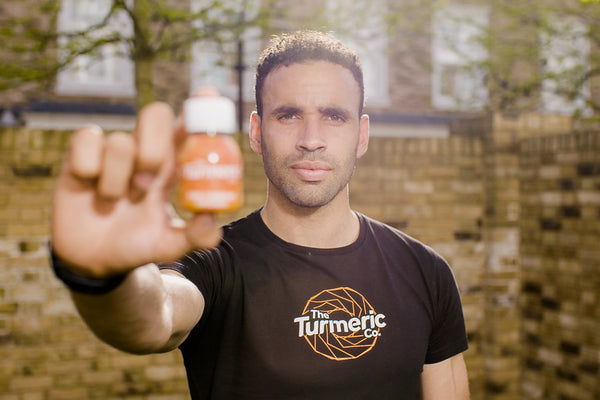The health benefits of fasting: do they exist?
If you're like most people, the thought of fasting probably makes you cringe. You may think that skipping a meal means starving yourself, and that's definitely not good for your health.
But what if we told you that there may be benefits to fasting? Fasting isn't about depriving yourself, it's about giving your body and your mind a break for a period of time - not all about losing weight and calorie restriction. So if you're wondering about the health benefits of fasting, keep reading!
What is fasting?
Fasting is a time-restricted diet in which you would purposefully leave a significant amount of time between your last meal of the previous day and the first of the next. Essentially, fasting is all about abstaining from all or some food and drink and eating your daily meals within a shorter time frame – this may be within an 8-hour window, or even shorter! This could look like having your first meal at 12pm, and your last meal by 8pm.
Although popular in the health-conscious societies of today, fasting is acknowledged as one of the oldest therapeutic behaviours due to its role in cultural practises, with many religions incorporating it into their beliefs and festivals, such as Ramadan.
How does fasting work?
Glucose is the liver’s fuel. By fasting, you are triggering the stored glucose in your liver to produce energy, which causes cells to release fats. These fats then travel to your liver and are converted into ketones for your body to use for energy! In short – when fasting, the body uses up all stored sugar and begins to burn fat.
But remember – if you’re looking to experiment with intermitted fasting, your daily raw turmeric shot would break your fast! So make sure that you have your nutrient-boosting shot with your first meal of the day.
What are the benefits of fasting?
Though it may seem like an odd practice, fasting may actually offer a number of health benefits. Contrary to what you may think, there are different types of fasts that can be tailored to fit your individual needs. With this in mind, here are some suggested benefits of fasting that just might change your life:
-
Fasting may help mental function
When fasting, the body has a reduced amount of toxins flowing around it – believe it or not, this actually makes it easier to think!
This is because the energy you would usually use to digest food is able to be used by the brain. However, a shift in alertness may not be evident in the first few days of fasting as the body will be adjusting to this change. Once clear of any toxins, the brain will have a ‘cleaner’ supply of blood which may result in clearer thoughts and memory.

-
Fasting could aid physical rejuvenation
Fasting may help to redistribute nutrients around the body and dissolve any diseased cells.
Whilst fasting, the body renovates itself and builds new structures to distribute any nutrients. Naturally, the body hangs onto valuable vitamins and minerals whilst flushing out any old toxins and tissues - fasting makes this process a little but more straight forward!
-
Fasting could increase willpower
The process of fasting can be very testing on mental strength. By strengthening your ability to resist the satisfaction of snacking on your favourite treats throughout the day, you can focus on a bigger goal. When you take part in such a challenging exercise and succeed, you will not only feel accomplished, but you will also be able to reflect this winning mindset in other aspects of your life.
Wanting to get your 10,000 steps in a day?
Needing to clean out your wardrobe?
Looking to lift an extra 10kg in the gym?
You can do it all! It’s all about mindset.
Tips for fasting
Fasting may be a bit of a daunting practice to approach, which is why we’ve caught up with the experts at the English Institute of Sport to get their top tips for trying it out:
- Drink enough water – a sudden decrease in liquids and electrolytes from food may cause dehydration, so stock up on the H20 when you can!
- Make sure you eat foods high in energy and fibre – these will keep you feeling full between mealtimes.
- Avoid fried and processed foods high in trans-fat and sugar – these foods can make you feel satisfied at first, but you may feel hungry and weak when your blood sugar regulates.
- Take your time eating and be ‘present’ at mealtimes (put your phone away!)

How to fast safely
Although fasting has a long list of potential benefits, this practice may not work the best for everyone.
Doctors may not recommend fasting if you:
- Have diabetes
- Have low blood sugar
- Are recovering from a recent surgery
- Are breastfeeding
It's important to remember that everyone is different and some people may not tolerate fasting as well as others. If you’re considering incorporating fasting into your routine, be sure to consult with a healthcare professional first to see if it’s right for you.
Remember to always listen to your body – if fasting doesn’t feel good or makes you feel unwell, stop immediately. With a little bit of experimentation, though, you may find that fasting can help improve your overall health and wellbeing.
Have you tried fasting? What were your results?

The Hal Robson-Kanu Guide To Fitness & Nutrition
Gain exclusive insight into habits that will make every day a healthy and fulfilling one.












